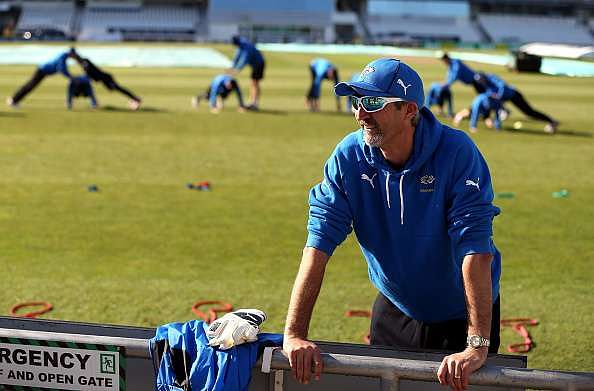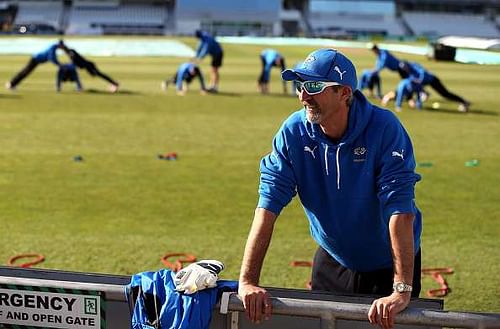
Jason Gillespie calls for run-penalties to counter slow over rates
Disillusioned with modern-day cricketers for failing to complete a day’s full quota of overs in time, former Australian pacer Jason Gillespie has floated the idea of deducting runs to address the issue. Writing in a column for London Evening Standard, the 41-year old criticized the prevailing trend in Test cricket and refused to entertain any excuses from players for slow over-rates.
Gillespie claimed, “It is unacceptable for a side to fail to bowl 15 overs per hour for six hours and I say this as a former fast bowler who wasn’t necessarily the quickest at getting through his overs. So if I were a match referee, I would be incredibly tough on it.”
Elaborating on his proposal, he believed, “I would have a pretty simple policy – 10 runs deducted for every over a team failed to bowl. So if they got through only 89 in a day, they’d lose 10 runs. If it were 88, it would be 20 and so on. If this were introduced, I guarantee teams would not fall behind on the over rate.”
Generally, skippers are fined if the team does not complete its overs in time. In case of repeat offences, match bans have also been handed out. However, Gillespie felt that financial punishments do not ‘hurt’ most players.
Also Read: Alex Hales compensates irate fan for lost overs during England-Pakistan Test
The seam bowler who is currently coaching Yorkshire wrote, “Fines don’t hurt the elite international player and while I would use suspensions as a last resort, I’d prefer run penalties. They affect the whole team.“
In County Cricket, points are deducted from the overall tally if teams exceed the stipulated time to finish their overs. Gillespie insisted that the system provided a major deterrent for slow over-rates.
He felt, “For us at Yorkshire, it’s non-negotiable, because if you don’t get through your overs, you lose points. You have to work bloody hard to earn bonus points in the Championship and if you lose some of them, you might miss out on the title. You might be relegated.”
Gillespie also noted that Shane Warne’s presence in the Australian side of the late 90s and early 2000s helped speed up things which in turn allowed them to control over-rates to a certain extent.
